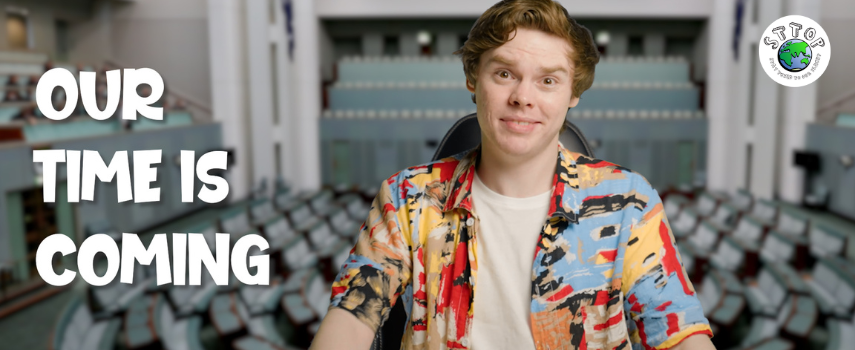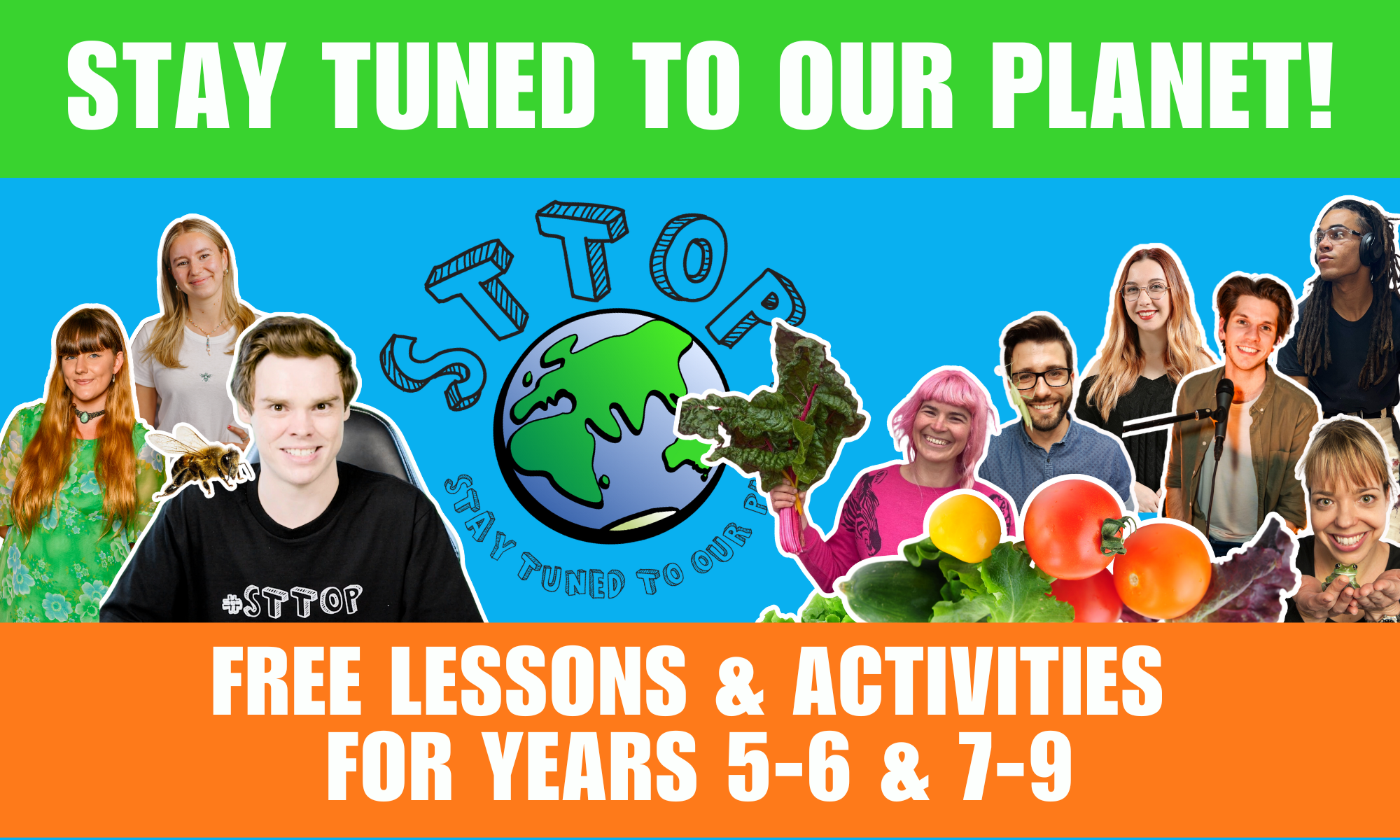Stay Tuned To Our Planet (STTOP)’s free, fast-paced sustainability program has landed in Aussie classrooms. What started as a series of fun, fast-paced YouTube videos has evolved into a national education program helping Aussie students take-action and become advocates for a more sustainable future, right from the classroom.
The Feds, a Sydney-based production team, first launched its youth-focused video series Stay Tuned To Our Planet (STTOP) in 2024. The goal was to deliver punchy, practical tips on sustainable living led by high-profile Aussie YouTuber, Mathew McKenna and 27 homegrown eco-warriors, ditching the doom-and-gloom messaging that often dominates climate conversations.
What they didn’t expect was that within a year, their content would leap from YouTube into classrooms across the country. But that’s exactly what happened with the launch of STTOP’s 64-plus curriculum-mapped education resources for Years 5-6 & 7-9, including classroom materials for students and dedicated resources for teachers. All the resources are mapped to ACARA and align with the Sustainability Cross-Curriculum Priority and delivered through fast-paced lessons spanning Science, and Humanities and Social Sciences.

‘The idea was to empower young Australians with easy actions they could do at school and at home to live more sustainably, and to help them feel they’re part of a collective movement aspiring for a better future,’ says STTOP Creator and Executive Producer Lizzy Nash who created the education program with impact Producer Jackie Turnure.
Built for classrooms, led by teachers
To make sure the classroom experience matched the energy of the original videos, STTOP partnered with renowned media educator Dr Anne Chesher of Quadrant Media and a team of leading Australian teachers.
'As soon as I heard about this project, I instantly knew that it had all the components of being creatively accessible, exciting and on-point for teachers in regards to the curriculum,' Dr Chesher says.
‘It spoke to a really critical and growing need to keep young people feeling hopeful. It was really apparent that it was becoming more and more difficult for teachers to be able to step up in front of a classroom to provide hope, opportunity and inspiration to young people in the face of all the bad news that they were receiving about the climate and the planet.’
Dr Chesher assembled a team of skilled classroom teachers across Australia, including Kelsey Hall, a media arts secondary school teacher from Queensland, and Kristina Chapman, a secondary school teacher from Queensland, to help drive the school program forward.
Together, they created a comprehensive, ready-to-use classroom package including lesson plans, worksheets, and practical activities for both school and home. Each resource is built around STTOP’s fast-paced YouTube series, making it simple and engaging for teachers to roll out in class. Best of all, it’s free.
‘A lot of what we do as teachers is adapting to how the new generation takes in information,’ Hall says. ‘That’s what we tried to do with the STTOP activities – to have short bursts of information mixed with activities, mixed with talking with your peers.’
Chapman agrees, noting the program’s impact goes beyond the classroom. ‘These are concepts that you take home, and students feel empowered and inspired to continue thinking about these topics. These are lessons that incite further thought and further conversations, even if it's just with the teacher on playground duty or with their family at home.’

All Australian content
STTOP Impact Producer Jackie Turnure says that having Australian voices was key to the program design and something teachers told them was important.
‘Too often, the education resources teachers find on YouTube are from overseas, and they can lack local relevance, which of course impacts the ability to engage and motivate students,’ she adds.
Tested in schools across Australia
In early 2025, STTOP piloted the education program with more than 150 students at schools across New South Wales and Western Australia, including International Grammar School Sydney.
Teachers have responded with enthusiasm, including this from Amelia, a primary school teacher:
‘STTOP brings learning to life! It is targeted at students, they find it funny, real and engaging. It helps bring awareness to students about the climate emergency in a way that is hopeful, practical and relevant to their lives. Thank you so much for allowing us to use this amazing tool. I'd love to continue teaching and learning with STTOP in the future!’
Turnure says that feedback was key to finalising the education package.
‘We refined the lessons based on insights from both teachers and students gathered through surveys and one-on-one interviews and used those learnings to shape the final design of the program,’ she says.
Recognising and addressing climate stress in the classroom
With an Orygen Institute and Mission Australia report revealing that 6 in 10 young Australians are worried about climate change (Fava et al., 2023), STTOP recognised an opportunity to support students through its education program.
‘In addition, teachers were telling us they didn’t want to add to their students’ stress when discussing environmental issues,’ Turnure says. ‘It became clear that this wasn’t just about supporting students and it was also an opportunity to better equip and support teachers.’
To address this need, STTOP partnered with headspace, Orygen Institute, Psychology for a Safe Climate, and a group of mental health professionals to develop a practical Teacher Support Resource that gives teachers practical tips on how to manage climate emotions in the classroom. After all, supporting students starts with supporting the teachers who guide them.
Get the STTOP free educational resources now!
STTOP’s free classroom-ready educational program, which includes the Teacher Support Resources at: https://sttop2030.com/education
References
Fava, N., Gao, C., & Baker, D. (2023). Climate of distress: responding to the youth mental health impacts of climate change. https://www.orygen.org.au/getmedia/ef72906e-b7ea-4486-8ad7-47d3122784f3/Climate-of-Distress-policy-paper-Aug-2023.aspx?ext=.pdf

